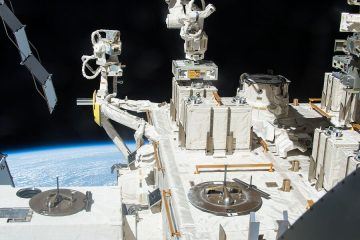Eva Botkin-Kowacki in The Christian Science Monitor:
 Most scientists say that Earth-life probably did originate on Earth. The standard thinking goes that somehow the conditions were ideal for just the right minerals to come together in a series of chemical reactions that yielded self-replicating molecules, that is, early life. But the particulars of that scenario have been tricky to pin down, leaving room for other possibilities. The concept of panspermia was kicked off, in part, by the humongous eruption of a volcano on the island of Krakatoa in 1883, says Dr. Melosh. The eruption completely sterilized the island, but just months later, life began to flourish anew. Naturalists explained that the miraculous regeneration came from seeds and insects floating on the winds or the tides from nearby islands, and that got some scientists thinking about the cosmos. Perhaps early Earth was like a barren island, too, they speculated, and the seeds of life or life itself drifted around space and alighted on our planet at just the right moment.
Most scientists say that Earth-life probably did originate on Earth. The standard thinking goes that somehow the conditions were ideal for just the right minerals to come together in a series of chemical reactions that yielded self-replicating molecules, that is, early life. But the particulars of that scenario have been tricky to pin down, leaving room for other possibilities. The concept of panspermia was kicked off, in part, by the humongous eruption of a volcano on the island of Krakatoa in 1883, says Dr. Melosh. The eruption completely sterilized the island, but just months later, life began to flourish anew. Naturalists explained that the miraculous regeneration came from seeds and insects floating on the winds or the tides from nearby islands, and that got some scientists thinking about the cosmos. Perhaps early Earth was like a barren island, too, they speculated, and the seeds of life or life itself drifted around space and alighted on our planet at just the right moment.
Since then, scientists have learned that the bombardment of cosmic radiation makes it extremely difficult for any kind of life as we know it to survive a journey through space. But for some scientists, the panspermia hypothesis still holds promise.
Dr. Melosh is one of those scientists, and some four decades ago, he proposed that, rather than drifting naked through space, microorganisms might survive that harsh environment in a protected place within rocks. According to this conjecture, life may have been present inside rocks on, say, Mars. And when an impact on the red planet ejected some of those rocks into space, one eventually wound up landing on Earth. Indeed, of 60,000 or so meteorites discovered on Earth so far, nearly 300 are thought to have originated on Mars.
More here.
